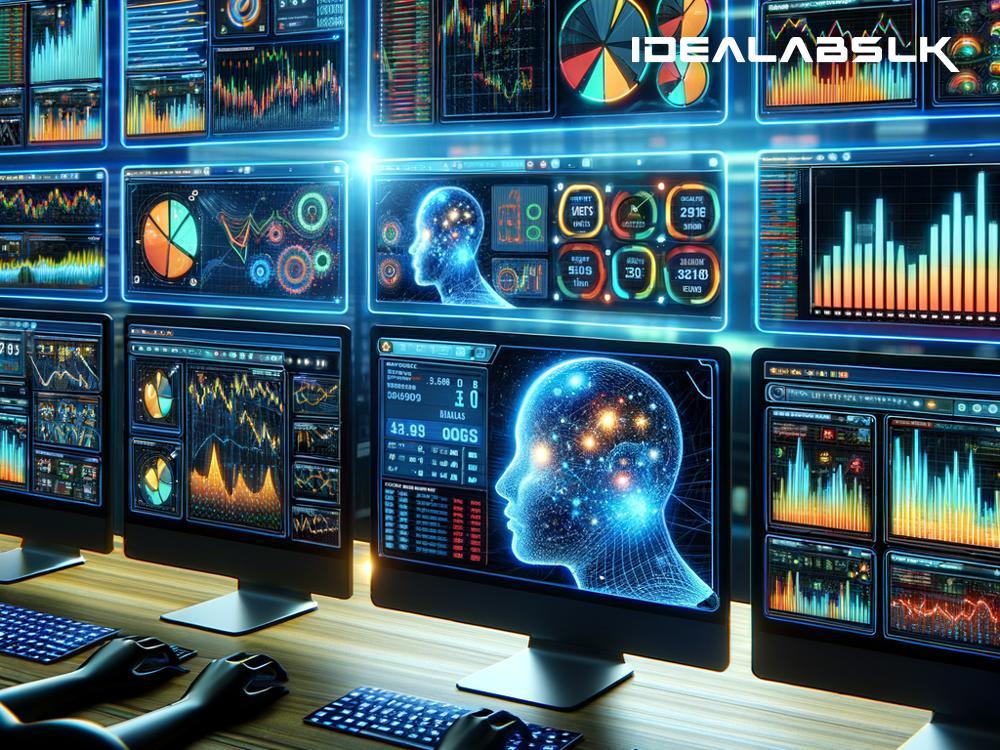AI for Real-Time Stock Market Trading: Unveiling the Future of Investing
In today’s fast-paced world, the stock market is a dynamic beast, constantly shifting and changing with the global economic climate. It's a place where fortunes can be made or lost in the blink of an eye. But what if I told you that there's a revolutionary tool changing the game for investors around the globe? This game-changer is AI, or Artificial Intelligence, and it's transforming the way we approach real-time stock market trading.
What is AI in the Context of the Stock Market?
Imagine having a super smart robot buddy who can analyze vast amounts of data in seconds, predict future market trends, and even execute trades on your behalf. That’s AI in the stock market for you. It can sift through historical data, news articles, financial reports, and even social media to make educated guesses on which stocks are about to go up or down.
How Does AI Make a Difference?
-
Speed: Human traders can only process information so quickly. AI systems, on the other hand, can analyze millions of data points in the blink of an eye. This means they can react to market changes almost instantaneously, giving them a significant edge over manual trading.
-
Accuracy: AI uses complex algorithms to predict market trends. While it's not 100% foolproof, it removes a lot of the guesswork associated with manual trading, making predictions more accurate based on historical data and trends.
-
Emotionless Trading: One of the biggest pitfalls in stock trading is letting emotions dictate decisions. Fear and greed can lead to poor choices. AI, being void of emotions, makes decisions based solely on data, leading to more rational and potentially profitable trades.
-
Round-the-Clock Trading: The stock market may close, but AI doesn’t need to sleep. It can monitor other markets around the world in real-time and execute trades based on pre-set criteria, ensuring opportunities are never missed because of time zone differences or sleep.
Real-Life Applications of AI in Stock Trading
-
Algorithmic Trading: Many hedge funds and financial institutions use AI algorithms for high-frequency trading, executing large numbers of orders at extremely high speeds based on pre-defined criteria.
-
Portfolio Management: Some firms offer AI-driven portfolio management services that analyze your financial goals and market conditions to create and manage a diversified portfolio tailored to your risk tolerance.
-
Predictive Analytics: Tools powered by AI analyze the market and predict future trends. This helps traders make informed decisions on what stocks to buy or sell and when.
Challenges and Considerations
While AI in stock trading seems like the perfect solution, it's not without its challenges. The algorithms are only as good as the data they're trained on, and unexpected market events can still cause significant impacts. Additionally, regulatory concerns and ethical considerations about automating financial decisions are ongoing discussions in the industry. Transparency in how these AI systems make decisions is also a growing demand among users and regulators alike.
The Future of AI in Stock Trading
AI is continuously evolving, becoming more sophisticated with each advancement. The future could see even more personalized AI trading bots, capable of managing individual investment portfolios based on personal financial goals and risk tolerance. Moreover, as these AI systems learn and adapt, their accuracy in predicting market trends will only improve, potentially leading to a new era in stock market trading driven by data and technology.
Conclusion
AI for real-time stock market trading is not just a glimpse into the future; it's a reality that's revolutionizing the investment world today. By leveraging the speed, accuracy, and emotionless analysis of AI, investors can navigate the often tumultuous waters of the stock market with greater confidence and efficiency. However, it's essential to approach this technology with an understanding of its limitations and ethical considerations. As we move forward, the synergy between human intuition and AI’s data-driven analysis will define the new norms in the ever-evolving landscape of stock market trading.
And so, as we stand on the brink of this new frontier, one thing is clear — AI is not only changing the game; it's setting the stage for a future where real-time trading is smarter, faster, and more efficient than ever before.

